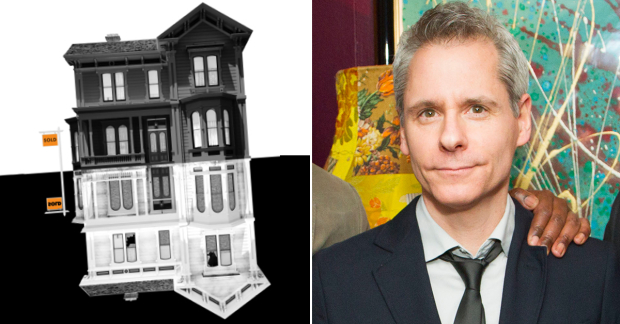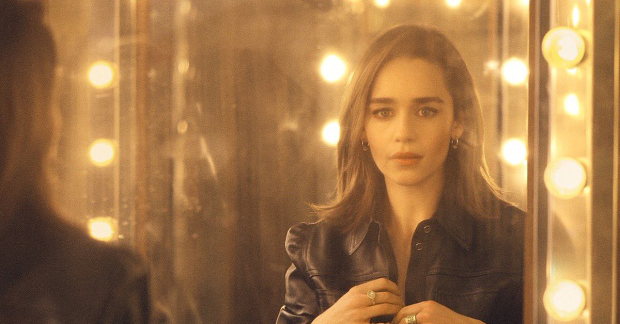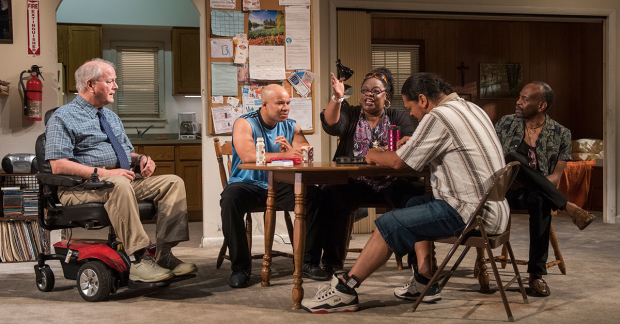Bruce Norris on Clybourne Park's 10th anniversary: "If a play is enjoyable then you don't need to justify it"

© right: Dan Wooller for WhatsOnStage
Bruce Norris' Clybourne Park was first produced ten years ago and in that time has established a reputation as one of the most important and celebrated pieces of drama in the 21st century. Winning a Pulitzer Prize, a Tony Award and an Olivier Award reflect Clybourne's critical success.
Ahead of its revival at the Park Theatre this spring, we spoke to playwright Bruce Norris about how he reflects on the play after a decade and the horror performances he has seen down the years.
It is ten years since Clybourne Park was first produced, how do you reflect on the play?
It is a coincidence you bring this up because a few weeks ago I saw a school production of Clybourne Park. It had been about four or five years since I last watched it and it all started coming back to me. I have seen productions in the past that have horrified me but this one was a charming bunch of schoolkids and I was grateful that I didn't hate it.
I think writing a novel must be much more personal than a play because it is always going to remain exclusively in your own voice. A play is respoken and reinterpreted constantly, it's like an act of ventriloquism. You have to accept it is never going to be exactly like you hear it in your head and that's a good thing, because a play is a collaborative process. Even though I am a terrible collaborator.
Why do you say that?
I am impossibly nettlesome and irritating and directors are driven mad by my presence. I pity any director that has had the misfortune to work with me.
How active are you in that relationship with a director?
It depends. For this revival I won't be very active at all because it would be pathetic of me at this point in the play's history to be micromanaging everything. It really would be sad for a man of my age to be doing that.
This is one of the most successful of your plays, did it feel different when you had finished it?
No. In fact I have other plays that I felt a greater affinity for or felt more efficient with in what I was trying to achieve. This one just got lucky – it was the right place and the right time and I can't explain why that one was successful and others weren't. Not that I would want to do that anyway, because you would be stuck thinking how I could do that again and who would want that? You don't want to reproduce anything. You're already condemned to your own mind's ideas, like a life sentence with yourself. If you're in the prison cell with me it is a miserable proposition.
Did the fact the play won the Pulitzer change anything?
You labour under the spectre that other people have won that prize and always judge yourself for not being in the club. Then if you do win it, for 24 hours you stop caring about it completely. And then gradually you start to think 'this other writer won two of them' and then you're back in the same position. The need to feel competitive with your fellow playwrights is terrible and yet is imposed by the creation of these awards or how we understand success.
Do you feel drawn into that competition?
I feel absolutely ensnared by it and so I make a deliberate ploy of never reading any arts coverage of any kind. I take the New York Times arts section, remove the crossword puzzle with a pair of tongs and set it aside, fold up the paper so I can't see anything else and throw it in the trash. I'm happier not knowing anything because otherwise I am ensnared by the sense of measuring myself against other people which is unspeakably horrible.
Is the play any more relevant now than it was when it was released?
Was it even relevant ten years ago? I honestly don't know. I wrote it in a certain time and there are things in it that are pointedly addressing say the Obama administration, but I have no idea how to answer the question. If a play is enjoyable then you don't need to justify it politically – the story should be good enough.
















